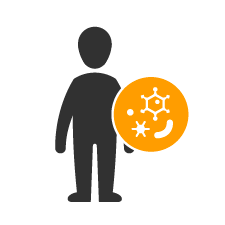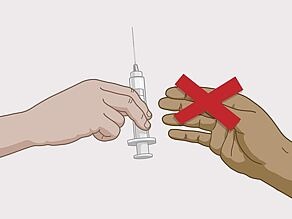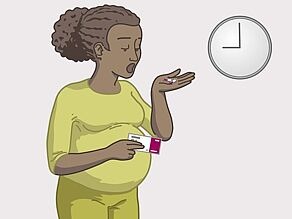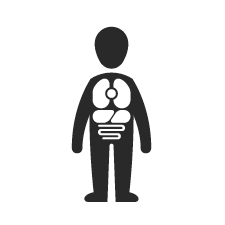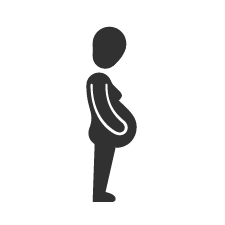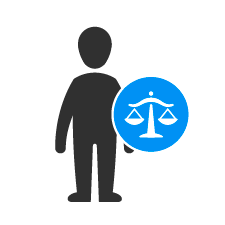Ways of protection
- Condoms protect against HIV and lower the risk of getting other STIs. Use a condom when having vaginal sex or anal sex.
Avoid getting blood and semen in your mouth (or swallowing them) during oral sex; then the risk of getting HIV becomes very low. - Only use your own injection material, or new material.
- More than 99% of all babies of mothers with HIV are born without HIV, if the mother takes medicines during pregnancy.
If you have HIV and you are not treated, you can infect other people, even if you have no symptoms yet.
In case of emergency
If you have been exposed to HIV, you can take a medicine called ‘PEP’. Take the medicine as quickly as possible (no longer than 3 days after unprotected contact). The sooner you start taking it after the unprotected contact, the higher the chance of not getting infected. Ask a doctor for help.
No longer any risk of infection
If you take your HIV medicines correctly every day, the amount of hiv in your blood (viral load) is reduced. After a few months it can often no longer be traced, though the virus is still in your body. Then there is almost no risk that you will infect someone else.
Under certain conditions it is possible for you to have sexual intercourse without a condom with your steady partner (steady relationship), who does not have HIV:
- If you take your HIV medicines correctly every day, and
- If, for at least 6 months, your viral load can no longer be detected, and
- If your viral load was checked less than 6 months ago;
- If you have no other STI and the mucous membrane of your mouth, anus, penis or vagina is not damaged.
Talk to a doctor and your partner if you want to have sexual intercourse without a condom.
If you want PEP to protect yourself
Protecting yourself from HIV with PrEP, if using a condom isn‘t possible
If you don’t have HIV yourself and have sex with someone who might be HIV-positive, you can take pills regularly to protect yourself. This preventive medicine is called PrEP. The medicine stops the virus replicating itself in your body.
If you want to take this medicine, talk to an HIV specialist doctor. The medicine is paid for by the statutory health insurance provider.

